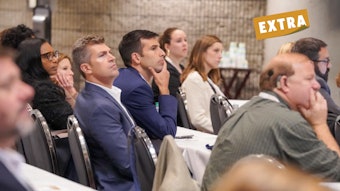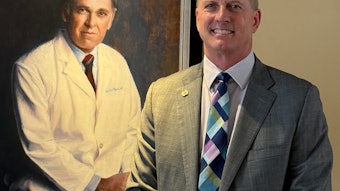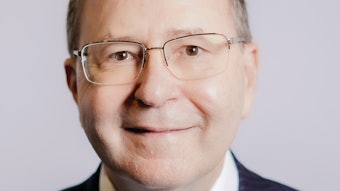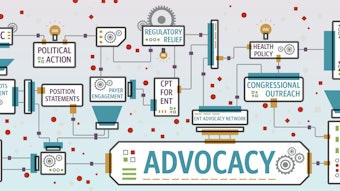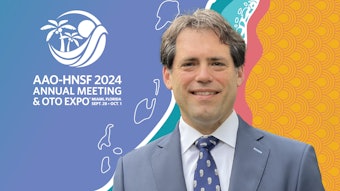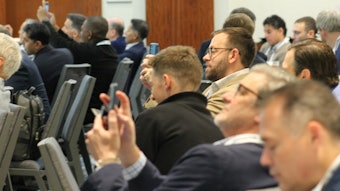Sound Advice: Essential Reads for This Summer
These book recommendations from otolaryngology-head and neck surgery department chairs will help you make the most of your summer reading.
Amanda Bastien, MD, PGY-3 resident at Cedars-Sinai Medical Center, Los Angeles, California

Great leaders intentionally make time for continued education. As part of a larger qualitative research project funded by a Women in Otolaryngology (WIO) Endowment Grant, I asked the chairs of otolaryngology-head and neck surgery departments what books they recommend to their faculty and trainees.
For the medical student, resident, or faculty member who cannot be a voracious reader right now, I have selected a handful of quotes from each title that generated pause and reflection in my own reading.
Your 168: Finding Purpose and Satisfaction in a Values-Based Life
by Harry M. Jansen Kraemer, Jr.Everyone has 168 hours in a week. Are you investing in what truly counts? Harry Kraemer, former chair and CEO of Baxter International and current professor at Northwestern University’s Kellogg School of Management, underscores the importance of self-reflection. He offers personal anecdotes and insights from others, guiding readers toward a meaningful life and a heightened sense of purpose.
“In pursuit of life balance, we are all works in progress.”
“The more self-reflective you are, the easier it is to make choices that are aligned with your values.”
Lean In: Women, Work, and the Will to Lead
by Sheryl Sandberg
Sheryl Sandberg, a prominent technology executive, delves into the societal and personal barriers holding women back from leadership roles. Published in 2013, the work shares candid personal anecdotes, including her own battle with imposter syndrome. Offering actionable advice and profound insights, Sandberg empowers women to conquer obstacles and excel in their respective industries.
“So please ask yourself: What would I do if I weren’t afraid? And then go do it.”
“Self-doubt becomes a form of self-defense...We put ourselves down before others can.”
Emotional Intelligence 2.0
by Travis Bradberry, PhD, and Jean Greaves, PhD
Emotional intelligence is the ability to perceive and understand emotions in oneself and in others. Bradberry and Greaves help readers build their skills using four key pillars: self-awareness, self-management, social awareness, and relationship management.
“Anyone can become angry—that is easy. But to be angry with the right person, to the right degree, at the right time, for the right purpose, and in the right way, this is not easy.”
“The biggest obstacle to increasing your self-awareness is the tendency to avoid the discomfort that comes from seeing yourself as you really are.”
Atomic Habits: An Easy and Proven Way to Build Good Habits and Break Bad Ones
by James Clear
Atomic Habits is an extensively researched and practical book that highlights the power of incremental adjustments. James Clear delves into the strategies for cultivating positive habits, breaking bad ones, and achieving big things.
“You should be far more concerned with your current trajectory than with your current results.”
“It is so easy to overestimate the importance of one defining moment and underestimate the value of making small improvements on a daily basis.”
“The more you think of yourself as worthless or stupid or ugly, the more you condition yourself to interpret life that way.”
“Forget about goals and focus on systems instead.”
Good to Great: Why Some Companies Make the Leap...And Others Don't
by Jim Collins
Good to Great is a management book that analyzes why and how good companies become great companies and emphasizes that most companies fail to make this transition. In this perennial work, Collins analyzes the performance of 28 companies over 30 years. Although published over two decades ago, the lessons continue to resonate. Learning from the successes of others can teach us how to improve at our own work.
“Good is the enemy of great. And that is one of the key reasons why we have so little that becomes great…Few people attain great lives, in large part because it is just so easy to settle for a good life.”
“Greatness is not a function of circumstance. Greatness, it turns out, is largely a matter of conscious choice, and discipline.”
“Great vision without great people is irrelevant.”
Mindset: The New Psychology of Success
by Carol S. Dweck, PhD
Carol Dweck studies human motivation. In this book, Dweck explores the impact of both conscious and unconscious thoughts and how perspective can influence our ability to improve. With the growth mindset, failure is not just accepted; it is expected. Winning is not everything; growing is.
“I won’t just have a job; I’ll have a calling. I’ll challenge myself every day. When I get knocked down, I’ll get back up. I may not be the smartest person in the room, but I’ll strive to be the grittiest.”
"Grit is living life like it's a marathon, not a sprint."
"The only way to truly succeed is to embrace failure."
“Success is a journey, not a destination."
The Body Keeps The Score
by Bessel van der Kolk, MD
Psychiatrist, researcher, and educator Bessel van der Kolk discusses and analyzes the intricate processes by which people recover from trauma. This book discusses human resilience and the power of relationships—which possess the power to both hurt and heal.
“Imagination is absolutely critical to the quality of our lives.”
“In order to change, people need to become aware of their sensations and the way that their bodies interact with the world around them. Physical self-awareness is the first step in releasing the tyranny of the past.”
“The greatest sources of our suffering are the lies we tell ourselves.”
“As long as we feel safely held in the hearts and minds of the people who love us, we will climb mountains and cross deserts and stay up all night to finish projects.”
Act Like a Leader, Think Like a Leader
by Herminia Ibarra
A career development expert and professor at the London Business School, Ibarra offers actionable steps and techniques to start acting like a leader. At the end of each chapter, there is a nice summary of key points. Ibarra identifies two types of leaders: “hubs” and “bridges,” with the latter spending more of their time outside of the team. Read to see if you identify as a hub or bridge.
“The only way to think like a leader is to first act: to plunge yourself into new projects and activities, interact with very different kinds of people, and experiment with unfamiliar ways of getting things done. In times of transition and uncertainty, thinking and introspection should follow action and experimentation—not vice versa.”
“Knowing what we should be doing and actually doing it are two very different things.”
“Aristotle observed that people become virtuous by acting virtuous: if you do good, you’ll be good.”
What Got You Here Won't Get You There: How Successful People Become Even More Successful
by Marshall Goldsmith and Mark Reiter
Goldsmith and Reiter caution against assuming past success guarantees future achievements. In this book, they discusses prevalent behavioral pitfalls that impede career advancement, providing practical guidance on cultivating essential skills and behaviors for achieving elevated leadership roles.
“Successful people become great leaders when they learn to shift the focus from themselves to others.”
“We spend a lot of time teaching leaders what to do. We don’t spend enough time teaching leaders what to stop. Half the leaders I have met don’t need to learn what to do. They need to learn what to stop.”
“People only change their ways when what they truly value is threatened.”
Leading Like Madiba: Leadership Lessons from Nelson Mandela
by Martin Kalungu-Banda
This is not a biography or commentary on Nelson Mandela, but rather stories shared by those who met him. Nelson Mandela made special efforts to live by what he believed. These stories serve as a reminder of the impact we can have on those around us.
“Our human compassion binds us to one another—not in pity or patronizingly, but as human beings who have learnt how to turn our common suffering into hope for the future.”
“It always seems impossible until it’s done.”
“The greatest glory in living lies not in never falling, but in rising every time we fall.”

